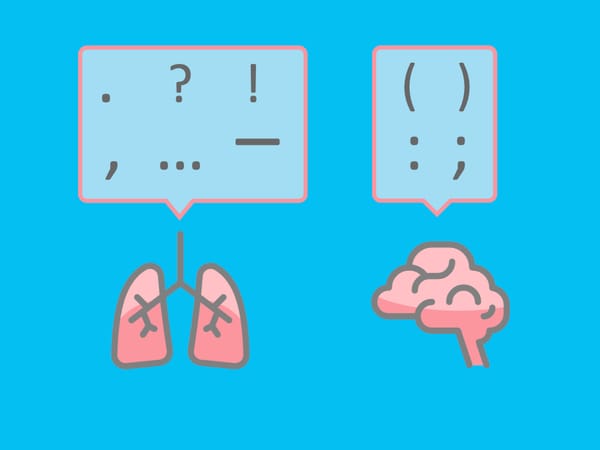What I Learned (again) at Jazz Camp

So I said I’d post, what, every other week? Ha!
The only excuse I have is that I was busy — at Jazz Camp! It was an amazing experience. I learned many new things. And I relearned some important stuff that I kind of forgot and had to relearn because it's important stuff.
And I’ve had to relearn this stuff before. I constantly have to relearn this stuff. Like last summer, 40 feet under the Puget Sound. Or years ago, in a screenwriting class. And just a couple of weeks ago at Jazz Camp. And each time, life grabbed me by the lapels and shook me until I remembered this stuff again, again.
I’ll tell you all about that latest bit of lapel grabbing after the news.
What’s going on?
- Your Parasite and You showed at Toronto's prestigious Fantasia International Film Festival in the Le Cabaret des curiosités 2025 short film block. The sold out short film block. Did all the buzz around YPAY pack the house? Yeah, I don’t think so, either.
- And YPaY just showed at Seattle Worldcon 2025 as part of the "Best of Crypticon” block Aug.
- Just a couple more festivals entries to hear from, and then I’ll need to start thinking about an online “premiere” for YPAY.
To get good at something, first you have to be bad at it
There it is. That’s What I Learned (again) at Jazz Camp. Thank you for coming to my Ted Talk.
To provide a little more background, I knew that lesson well before going to camp. Of course I did. But I had forgotten how it felt. I had forgotten that it applies to me. And in just six days, I went through many of the possible corollaries of this simple rule. Oh, those corollaries. They’re tricksy. Here comes one now.
Corollary 1: The best times often initially present as bad times
Tuesday night, the end of the second day of camp: I’m lying on the bed of my cell (oh yeah, a real cell—the dorm building had started as an army barracks, and at one point was a “diagnostic and treatment center for troubled youths,” with observation hatches in the doors, now sealed). And I’m lying there thinking “I have no talent. I’m stupid. Everyone here knows more than me. I’m way out of my depth. I could get the car loaded in 20 minutes, hit the road, and sleep in my own bed tonight. Nobody will care. I paid them."
I sent a text to a drummer friend of mine who was also attending camp, to see if we could talk so I could get some perspective, but he was busy talking with another drummer. In the end, I decided to sleep on it.
And woke up the next morning, and the whole crisis of faith had left me. I remembered recounting a similar crisis to my brother years ago. And he said, “Oh, that just means you’re pushing beyond your comfort zone.” Which, sometimes, is good to do. This kind of discomfort is a relative of the Good Bad Idea I described in an earlier newsletter, and is a similar engine of growth and change.
The trick is knowing when you’re in an experience that is stretching you vs. one that just plain terrible. I spoke with my friend the day after my crisis, and he told me that he that he couldn’t meet the previous night because he had been busy convincing another friend of his not leave camp. In fact, he knew of at least 2-3 other musicians who had a similar crisis at the same time I was having mine. We all ended up staying.
Corollary 2: Your past experience will not be as useful as you hoped
I brought pencils to Jazz Camp. I made sure to have plenty. And a sharpener. Because my past singing experience, off and on over 50+ years, is as a classical baritone. And in a classical choral group, you always bring a pencil. I’ve been in groups where you were fined if you didn’t have one at rehearsal.
Because in classical choral music, your goal is to sound exactly like what the conductor wants, every time. So you mark up your music with specific notes, changes, and reminders.
Not so with Centrum Jazz Camp. The focus was on performance. Specifically performance with an instrumental combo. Specifically specifically performance with an instrumental combo you haven’t even rehearsed with before. How do you set the tempo? How do you let the combo know when it's their turn to improv? When do you come back in after the solos? How do you let the combo know when it’s time to finish the song? And how do you do all this in the middle of performing the song itself?
It was an entirely different approach than how I had been singing for decades. My classical training had not prepared me for this.
And it gave me a flashback to being wrapped in neoprene under the Puget Sound. Because last summer, at the ripe old age of [indistinct mumbling], I decided to finally get my SCUBA certification. And I figured that my (admittedly ancient) background as a competitive swimmer, lifeguard, and swim instructor would come in handy.
Only kind of, maybe? Turns out swimming is really the least of diving. Sure, you need to be comfortable in the water. But buoyancy control and managing your equipment are far more important than having a good backstroke. In fact, I never did the backstroke at all, much less butterfly or freestyle.
Turns out, diving is diving, and swimming is swimming. The same as jazz singing vs. classical singing. Sure, there’s a Venn diagram overlap, but it’s just a slice.
Corollary 3: Prepare for the breakdown
The breakdown is the corollary of the previous two corollaries. It’s corollarypalooza all up in here!
The breakdown is when I'm forced to accept that the new experience I'm in is a new experience, that my previous experience is of limited use, and I have to start more or less anew from where I am now. And that is rarely where I thought I was going to be. Hence my Tuesday night crisis.
Going through the breakdown was actually built into the curriculum of a screenwriting program I was in. In one of the first sessions, the instructor had us come up with movie ideas. And invariably, we all came up with McGuffin-laden high-concept plots. Not stories, plots.
(“McGuffin” is a term popularized by Alfred Hitchcock, meaning a device or object that is the focus of the action of a movie, but isn’t really important to the movie in and of itself. The Maltese Falcon of The Maltese Falcon, the briefcase in Pulp Fiction, and the Ark of the Covenant in Raiders of the Lost Ark, are all classic McGuffins.)
And our instructor kept asking us: who is the protagonist? What are the stakes for her personally? Why does this matter to her? And none of us were ready to answer. We were all too into our weird plot devices. But our instructor was insistent—if there wasn’t a watchable character with personal stakes involved, even the coolest high concept would not make a good story.
For example, the recent comedy-action movie Novocaine has the plot device of a protagonist that cannot feel pain. That’s a fun concept for an action movie. Like he can roll his fists in broken glass to take down a huge guy in a fist fight. He can reach into a bubbling deep fryer to retrieve a gun.
But what makes the movie watchable, what makes us care is that he’s a sheltered guy who meets someone who helps him start to experience life for the first time—and then she is kidnapped in a bank robbery.
Plot + character = story. At the beginning of class, we were mostly focused on plot. Our instructor actually led us through a breakdown, a mini-crisis to make us realize we needed to try a new approach.
It’s easy to arrive a new endeavor metaphorically looking and moving in the wrong direction. For me, there’s always a point where I need to (and sometimes be made to) stop, reorient myself, and accept the fact that I now have to do a fresh restart in a new direction. I can’t coast on the old momentum like I was hoping to.
Vexing? Yes. Painful? Sometimes. Worth it? Always.
Fun facts to know and share
So Ethel Merman put out a disco album. Who's Ethel Merman? What's disco? Just click the link and it kind of answers itself. How did I find this in the first place? None of your beeswax. My apologies in advance.
Pitch perfect. Packed with references. My thanks to humor consultant Paddy Gilmore for resurfacing this classic.

Whatever they’re smoking over at KFC UK, looks like it’s the good stuff. (By the way, only click on the next ad in this series if you have a seriously high tolerance for weird. You think this ad is weird? The next one is Midsommar levels of weird.)

Over to you
So have you ever had a transcendent experience that masqueraded as a bummer? Let us know about your eventual triumph in the comments.
Until we talk again, I remain,
Your pal,
Jamie
P.S. What do you think of this issue’s title animation? I’m trying out a new design concept. It’s called color. Turns out there’s a lot of them! They're fun!



